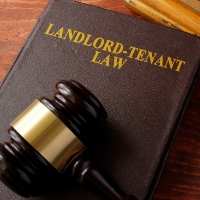From Ohio to Alaska, several local and state governments have considered releasing non-violent criminals early to avoid catastrophic coronavirus outbreaks in local prisons and jails… and some areas already have. While not every state has fast-tracked releases, with some areas choosing to lower bails for misdemeanors or encourage their police force to ease up on arrests, the number of early releases is increasing.
Understandably, this can be concerning. As my local Sheriff stated, “[they’re] not thrilled with the idea of having 500 more criminals out on the streets.” This community unease over public safety isn’t reserved to California only. The recidivism rate amongst state prisons hasn’t been promising in the past. Five out of six prisoners released from state prisons in 2005 were arrested at least once 9 years following their release, and with more former criminals out than ever, rental properties across the nation are filled with worry over potential safety liabilities.
While the future might be uncertain with COVID-19, we’re here to help give you a little peace of mind when considering renting to recently released inmates. This is why we don’t fear the early release of those from state prisons and jails, and you shouldn’t either.
Current Rental Industry Impact
The Type of Releases
When you look at the states and cities considering early releases, you’ll notice that there are immense differences in how local governments are vetting who gets to be released. Unlike the federal government’s approach to home confinement which allows case managers to vet inmate eligibility on a case-by-case basis, many current release standards simply fast-track those who fall into three categories:
- The person is susceptible to COVID-19
This one often refers to those of an older age or with chronic conditions, but it can also include other factors. For example, Michigan’s executive order allows pregnant women (or in Ohio’s case, women in prison with an infant) to be also eligible for early release.
- The person is susceptible to COVID-19
- The person was going to be released soon anyways
A lot of the prisoners being considered for early release had already served the majority of their sentence. On the more extreme end, New York City allowed inmates (with misdemeanors & nonviolent felonies) with less than 12 months in their sentence to be considered for release. In California, they released those who were due to be paroled in the next 60 days. In Ohio, those who were set to be released within 90 days are eligible for early release.
- The person was going to be released soon anyways
- The person was convicted or suspected of low-level crimes
While the conditions might vary, all of the local governments considering releasing prisoners early are considering those with nonviolent crimes or misdemeanors. For the most part, many governors (plus New York’s Mayor de Blasio) have urged that inmates with domestic violence or sexual offense charges are not being released.
- The person was convicted or suspected of low-level crimes
While seeing headlines urging that thousands of prisoners are being released is alarming, it’s important to remember these three eligibility categories. All of the inmates being released fall into the “vulnerable prisoner” category (meaning they’re older, with health conditions or are pregnant) and were convicted of nonviolent crimes. Many have already served the majority of their time and were going to be released within the year.
Lease Add-Ons: You Still Have Background Screening
If one of your renter’s family members does get released early and they want to live on your property, remember that the terms of your rental agreement still stands. You’ll need to seek legal advice and review the terms of your lease before proceeding but should follow your normal standards and procedures for adding someone to the lease. If your lease doesn’t outline these standards, consider adding an addendum.
Previously convicted or not, make sure your leasing standards are applied equally across all your applicants and lease add-ons. If it’s your policy to screen all your applicants/lease add-ons (if not, it should be), do that.

Lease Add-Ons: You Still Have Background Screening

If one of your renter’s family members does get released early and they want to live on your property, remember that the terms of your rental agreement still stands. You’ll need to seek legal advice and review the terms of your lease before proceeding but should follow your normal standards and procedures for adding someone to the lease. If your lease doesn’t outline these standards, consider adding an addendum.
Previously convicted or not, make sure your leasing standards are applied equally across all your applicants and lease add-ons. If it’s your policy to screen all your applicants/lease add-ons (if not, it should be), do that.
Stay At Home Orders Prevent Movement
For many states, stay-at-home orders prevent how much trouble people can get into. In states like California, where public groupings are limited to 2 people and outside activities are highly restricted, it’s unlikely many of your renters will be leaving the house anytime soon. While you ultimately can’t control what your renters do, these orders might make it a little bit easier to spot if something is awry.
Future Rental Industry Impact
Cases for Discrimination
Because there are more people with prior criminal convictions out of jail and looking for a place to live, you’ll need to be extra careful to standardize your leasing process in the future. You don’t want you or your property to become associated with claims of discrimination — it’d be bad for your reputation and potentially your wallet in legal fees. Although those with criminal records are not a protected class (yet), it’s better to be safe than sorry.

Tenant Screening Changes
Over the past few years, many local laws have been put in place to restrict the use of criminal records for housing decisions. In Cook County, Illinois, you can only consider the past 3 years of convictions. Seattle, Washington completely prohibits the use of criminal reports other than obtaining information from the sex offender registry. Other areas dictate that a conditional offer must be extended to the applicant prior to screening. These attacks on criminal records were still happening pre-COVID, and it’ll probably continue afterwards.
That being said, as long as your local laws don’t restrict criminal reports, now might be the best time to use them. With more prison releases than ever, you might want to upgrade your rental properties’ tenant screening to include a criminal history report on all your applicants.
Tenant Screening Changes
Tenant Screening Changes

Over the past few years, many local laws have been put in place to restrict the use of criminal records for housing decisions. In Cook County, Illinois, you can only consider the past 3 years of convictions. Seattle, Washington completely prohibits the use of criminal reports other than obtaining information from the sex offender registry. Other areas dictate that a conditional offer must be extended to the applicant prior to screening. These attacks on criminal records were still happening pre-COVID, and it’ll probably continue afterwards.
That being said, as long as your local laws don’t restrict criminal reports, now might be the best time to use them. With more prison releases than ever, you might want to upgrade your rental properties’ tenant screening to include a criminal history report on all your applicants.
Standardize your Leasing Standards
In the future, you might also want to equip your properties with a leasing tool that allows your written rental criteria to be objectively applied to all your applicants. As we said before, discrimination lawsuits will be your worst enemy post-pandemic. Ensuring that your rental criteria is both legally up-to-date and equally applied will be a priority. Using a leasing tool that automatically takes your applicant’s data and applies it to your written criteria ensures your leasing team isn’t leading with bias.









